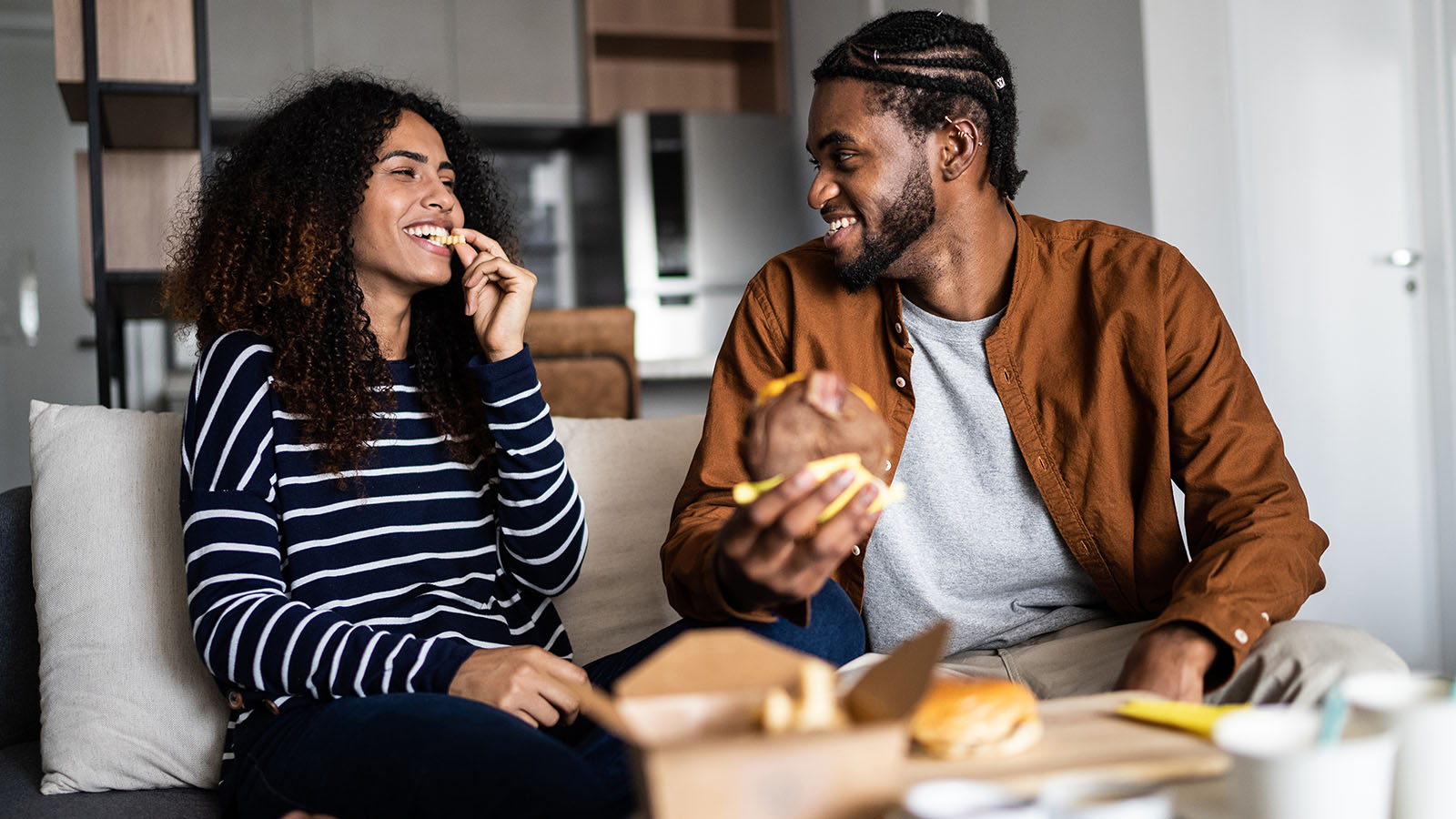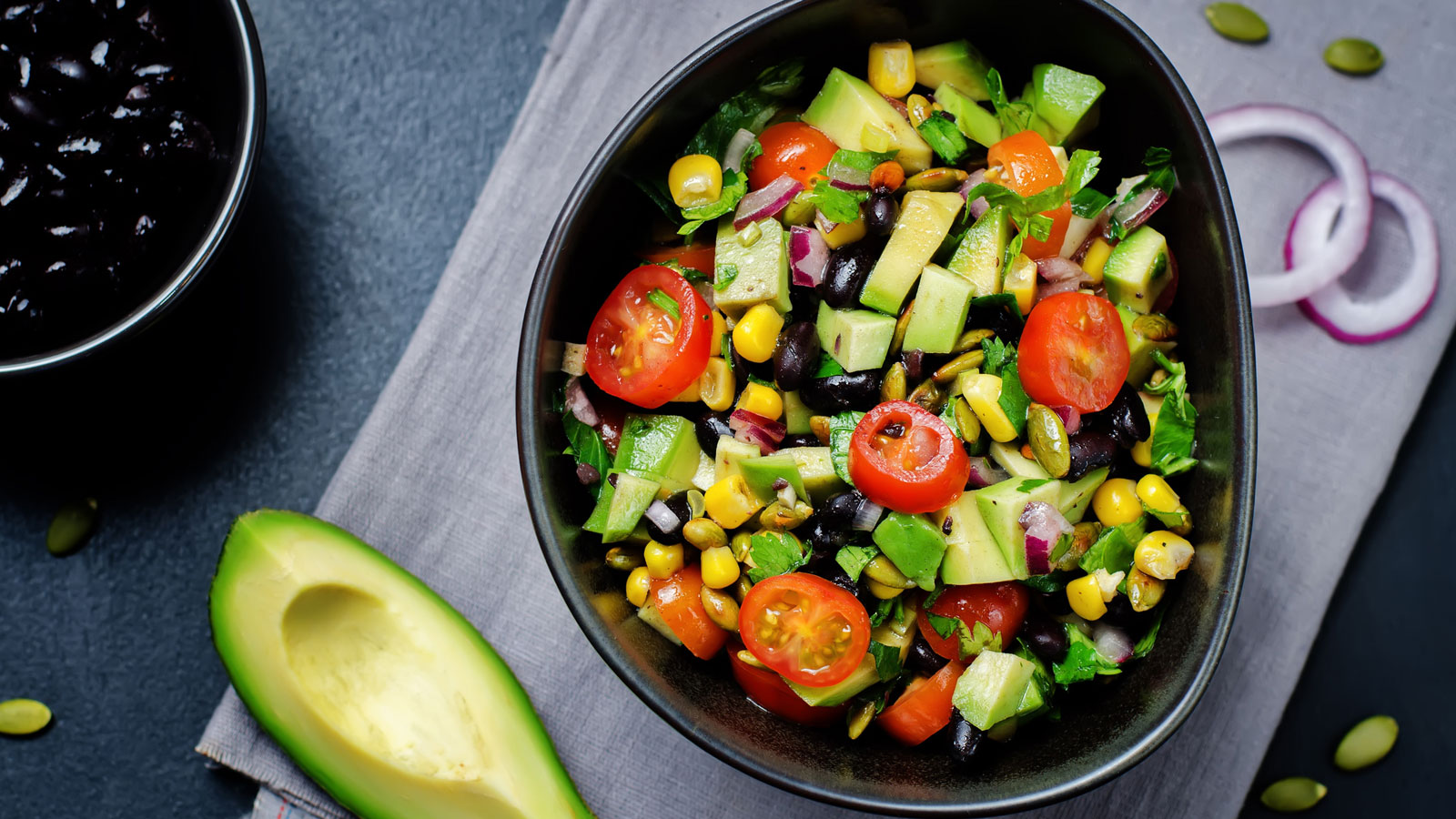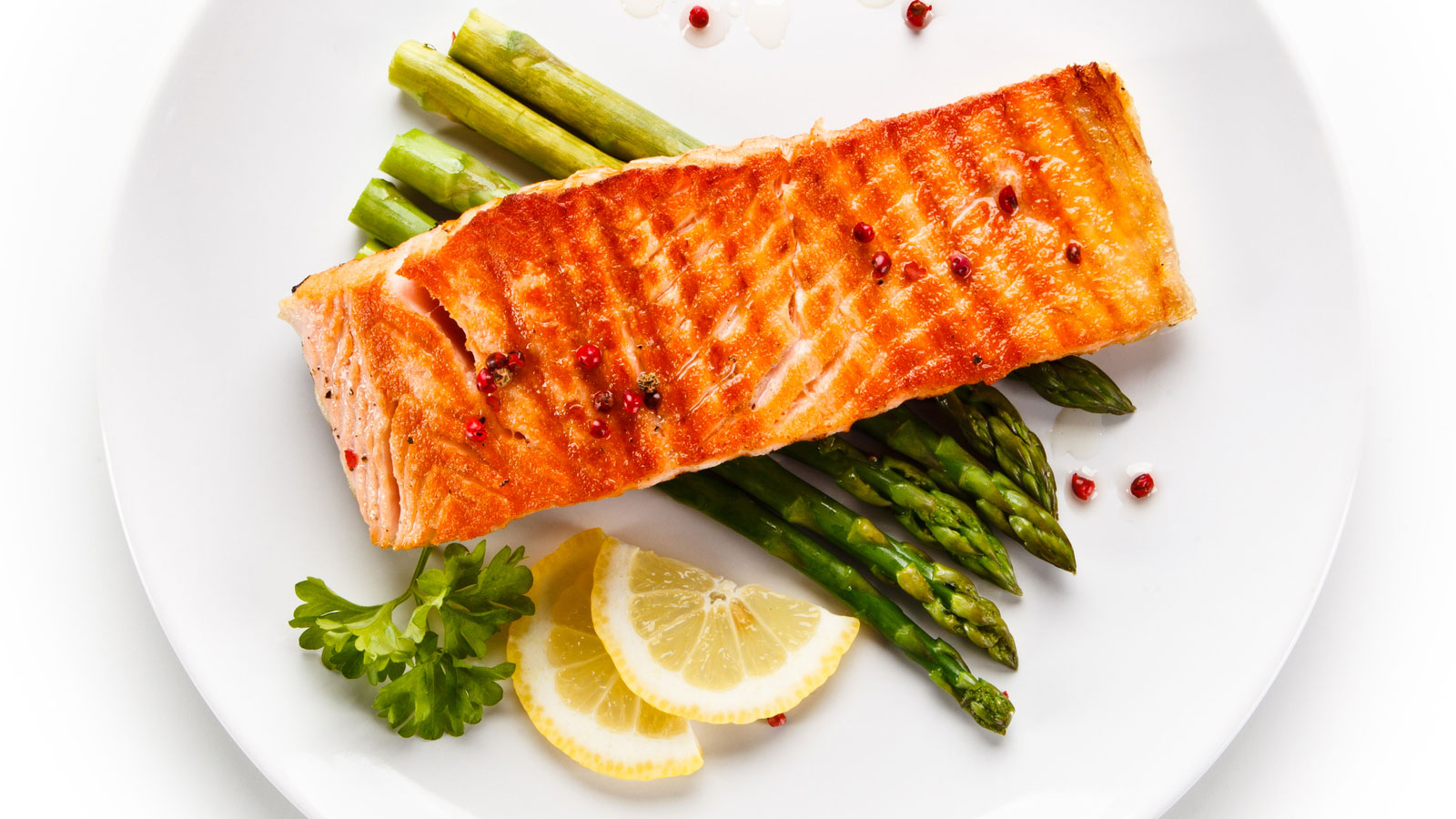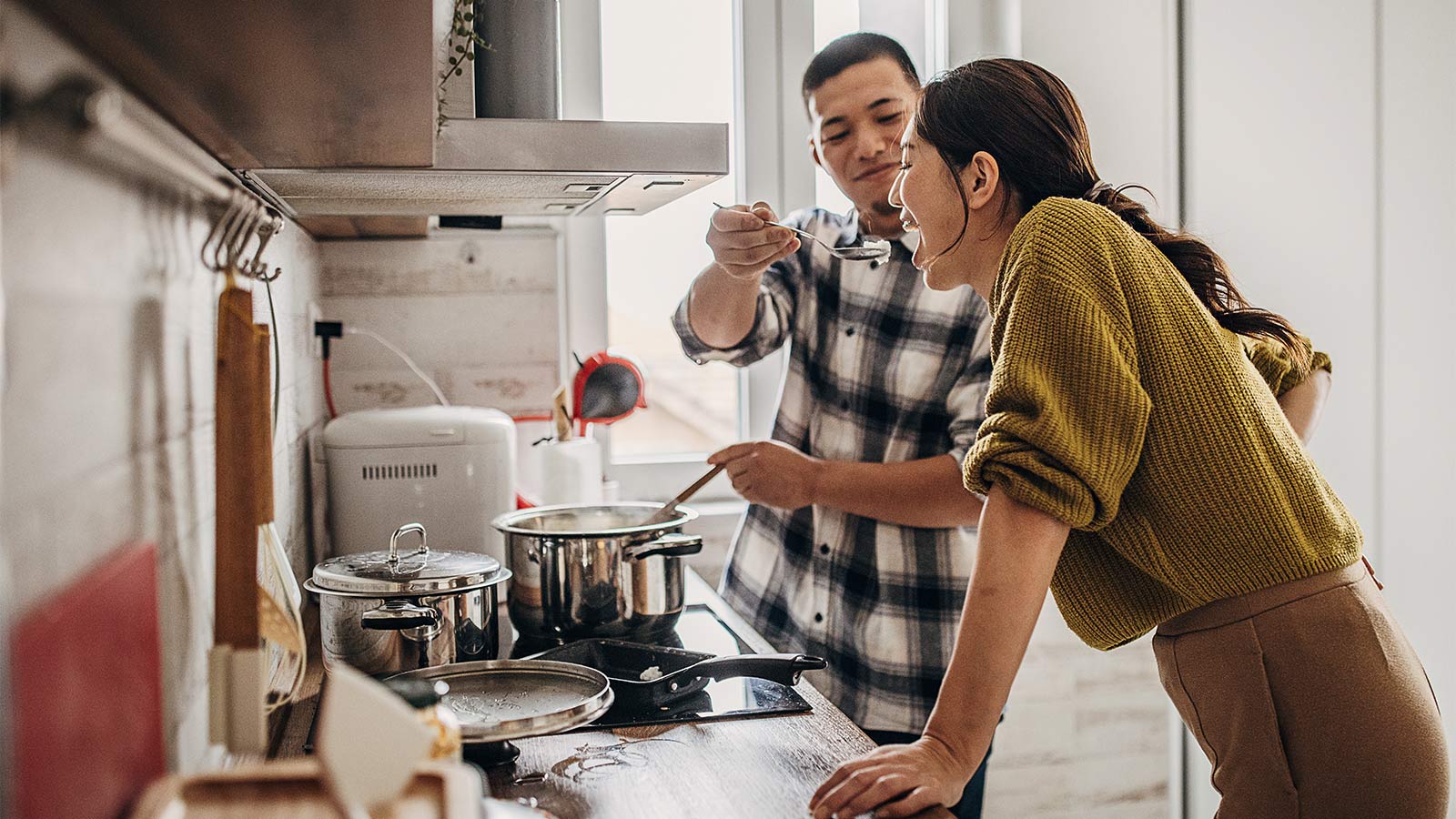How Do You Manage the Side Effects of Weight-Loss Medications?
Weight-loss medications, like Zepbound or Wegovy, are effective tools for managing obesity, but they can have side effects. These tips can help you avoid issues.

By Erin Wickersham, RDN, Registered Dietitian and Patient Education Coordinator, Virtua Nutrition and Diabetes Care
GLP-1 and GLP-1/GIP medications, like Zepbound, Wegovy and Saxenda, are effective tools for helping people lose weight and manage obesity. These medications mimic your natural gut hormones that regulate blood sugar, slow stomach emptying, and suppress appetite.
While these medications effectively support weight loss, they can have potential side effects.
Tips for managing common weight-loss medication side effects
What should I do if my weight-loss medication causes nausea?
One of the most common side effects is nausea, which can occur initially or when increasing the dose, but it typically eases over time.
- Eat slowly: Eating slowly gives you time to recognize when you feel full.
- Space out meals: Eat every four to five hours to let your meals digest.
- Avoid triggers: Avoid nausea-triggering foods, such as high-fat, fried or sugary foods.
My weight-loss drug is causing constipation.
Constipation, another common side effect, can lead to discomfort and other digestive issues.
- Increase your fiber intake: Add fiber-rich fruits, vegetables, whole grains, beans and other legumes.
- Stay hydrated: Drink 64 ounces of water daily to maintain bowel regularity.
- Move your body: Engage in physical activity to stimulate your bowels.
- Talk to your doctor about a stool softener: If constipation persists, your doctor may recommend an over-the-counter stool softener or fiber supplement.
My weight-loss medicine gives me indigestion.
Weight-loss medications slow stomach emptying, potentially causing heartburn, reflux, bloating, and gas.
- Limit fatty foods: Fatty foods digest slowly and can worsen your symptoms.
- Avoid irritants: Limit your intake of greasy or spicy foods and carbonated beverages, which may trigger indigestion.
- Eat mindfully: Eat slowly and chew your food thoroughly.
- Time your meals: Avoid eating three hours before bed. Staying upright gives your food more time to digest.
I have little to no appetite since staring on a GLP-1.
A reduced appetite is a common side effect, but undereating is a concern. If you feel full after a few bites, talk to your doctor about adjusting your dosage. You can also try these tips to ensure you're getting enough nutrients:
- Focus on eating nutrient-dense foods: Choose nutritious, low-calorie foods such as lean proteins, healthy fats, fruits, vegetables, and whole grains. Eat proteins first to maintain your muscle mass while losing weight.
- Listen to your body: If you don’t feel regular hunger cues, like your stomach growling, eating every three to five hours is still beneficial.
- Consider protein shakes: While most of your diet should come from whole foods, your dietitian may talk to you about using a protein supplement until your appetite improves.
When to talk to your doctor
It's crucial to communicate any side effects to your health care provider, who can offer tailored advice to manage them while supporting your weight-loss goals.
Learn about weight-loss options at Virtua
We can help you meet your goals with a personalized approach and the behavioral and nutritional support you need for lasting weight loss. Learn about Virtua’s Complete Weight Management program.
There's So Much More to Explore
Discover expert insights, inspiring stories, health tips, and more by exploring the content below!
Is an At-Home Colon Cancer Test a Good Alternative to a Colonoscopy?

What Should You Do if You Slip, Fall, and Hit Your Head?

How Do You Manage the Side Effects of Weight-Loss Medications?

Which Weight-Loss Option is Best for Me?
Achieving and maintaining a healthy weight is not the same for everyone. Our Complete Weight Management Program offers choices and support to achieve your weight-loss goals.
A Woman’s Four-Step Guide to Fight Back on Back Pain

What You Need To Know About Carpal Tunnel Syndrome

The Truth About Menopause, Weight Gain, and Belly Fat

Shedding Light on Lesser-Known Menopause Symptoms and Solutions

Debunking The Myths About Vaginal Dryness
Inside Look at Blood Vessels Aids PAD Treatment
Denise Davis: Pay Attention to Your Heart Health

What You Need To Know About Stroke Treatment

10 Smart Ways to Manage Your Diabetes

What Causes Food Addiction And What Are The Signs

Signs You May Have Chronic Kidney Disease

5 Essential Winter Foot Care Tips When You Have Diabetes

Sweet Music: Trust, Teamwork Save Justin from Heart Attack

Complex Heart Surgery Nets James a Lifelong Friend

Your 10-Point Plan to Avoid Winter Weight Gain

Hepatitis C Kidney Transplant a Blessing For Lee Manns

7 Reasons Why You Want Your Surgeon to Be an Expert in Robotics

Colitis Symptoms Under Control, Jennifer Is ‘Living My Best Life’

How Do I Care for a Wound that Won't Heal?

Five Back Pain Risk Factors That You Should Know

Is My Back Pain Normal, or Is It Spinal Stenosis?

Gut-Healthy Recipe: Turmeric Chicken With Asparagus

Gut Health Recipe: Chipotle Salmon and Sweet Potato Bowl

Robotic Hernia Surgery Combines Innovative Techniques With Faster Recovery Times

5 Back Stretches for the Work-From-Home Workweek

How Does Breast Density Affect Your Mammogram?

Menopause: New Insights Into the Power of Hormone Replacement Therapy
Signs You Should Get Treated For Vein Problems

One New Heart Valve Saves Two Lives in the Tritten Family
What You Need to Know About Heart Failure

6 Numbers Key to Keeping Your Heart Healthy
Lung Valve Surgery Relieves COPD, Emphysema Symptoms

4 Easy Ways to Treat and Prevent Runner's Knee

Lung Screening, Robotic Technologies Get Pat Kicking Up Her Boots Again

Breast Cancer Diagnosis Inspires Catherine to Help Others

Jasmine’s On-Air and Pain-Free After Gallbladder Surgery

What is the 80/20 Diet Rule?

When Should I See a Doctor About My Knee Pain?

Quick Action Leads to Jesse's Recovery From Stroke

A Non-Athlete’s Guide to Shoulder Overuse Injuries
Shoulder problems aren’t limited to athletes. Virtua orthopedic surgeon Sean McMillan, DO, explains shoulder overuse injuries and prevention in this article.

A Non-Athlete’s Guide to Shoulder Overuse Injuries

Wide-Awake Hand Surgery Speeds Recovery, Puts Control in Patients' Hands

South Jersey Veteran Thrives After Cross-Country Kidney Donation

Five Mindfulness Tips That Can Help Heal Your Heart
Working from Home? Take a Quick Break to Stretch Your Wrists

3 Ways to Avoid Knee Pain

When Should I See a Doctor for My Hip Pain?

When Should I See a Doctor About My Shoulder Pain?

Is My Back Pain Normal, or Is It Sciatica?

Is My Back Pain Normal, or Is It a Herniated Disk?

When Is It Back Pain, and When Is It Something More?

Watchman Heart Device: a Technological Breakthrough for Blood Clot Prevention

Albert's Emergency Cardiac Surgery Is a 'Story of a Lifetime'

What Can I Do Right Now About My Aching Back?

How Do I Get Rid of This Back Pain for Good?

Can Your Gut Health Affect Your Heart?

When Should I Be Worried About My Neck Pain?
Advanced Heart Failure Therapies Get Bernadine Back to Full Speed

Sarah Wins Back Her Health After Crohn's Disease Diagnosis

Overcoming Addiction, Philip Now Sees More Positive Side to Life

Gut-Health Recipe: Berry Yogurt Parfait

Gut-Health Recipe: Avocado and Black Bean Salad

Air Fryer Salmon with Roasted Asparagus

Healthy Gameday Snacks: Buffalo Chicken Dip

Healthy Gameday Snacks: Sheet Pan Nachos

Healthy Gameday Snacks: Healthier Homemade Pizza

Healthy Gameday Snacks: Healthier Guacamole

Healthy Gameday Snacks: Air Fryer Buffalo Wings

5 Delicious and Healthy Gameday Snacks
Firefighter's Successful Lung Cancer Care at Virtua
A Lung Screening Put Teresa Back in the Race

A Breast Self-Exam Saved Kristen's Life

Early Treatment is Best to Relieve Hemorrhoid Symptoms

The Top 10 Foods For A Healthy Diabetes Diet

Keeping the Beat: Advanced Heart Surgery for Aortic Aneurysm

Heart-Healthy Summer Recipe: Hummus and Veggies

4 Delicious Heart-Healthy Recipes Perfect for Summer

Heart Healthy Summer Recipe: Dessert Parfait

Heart-Healthy Summer Recipe: Pear and Walnut Salad

Heart-Healthy Summer Recipe: Terrific Turkey Burgers

Are You At Risk For Chronic Kidney Disease

Local Pastor Makes Kidney Health Mission of Ministry
What’s the Difference Between Type 1 and Type 2 Diabetes?

Is This the Right Time in Your Life for Bariatric Surgery?

All for Bear: Dan Loses Weight to Be His Son’s Kidney Donor

Augmented-Reality Surgery Has Bobby Back on Stage, Rocking His New Hip

Forget Dieting: Find Your Eating Pattern

Hyperbaric Wound Therapy Puts Joette Back in Motion

Robotic Hernia Repair Renews David's Active Lifestyle

